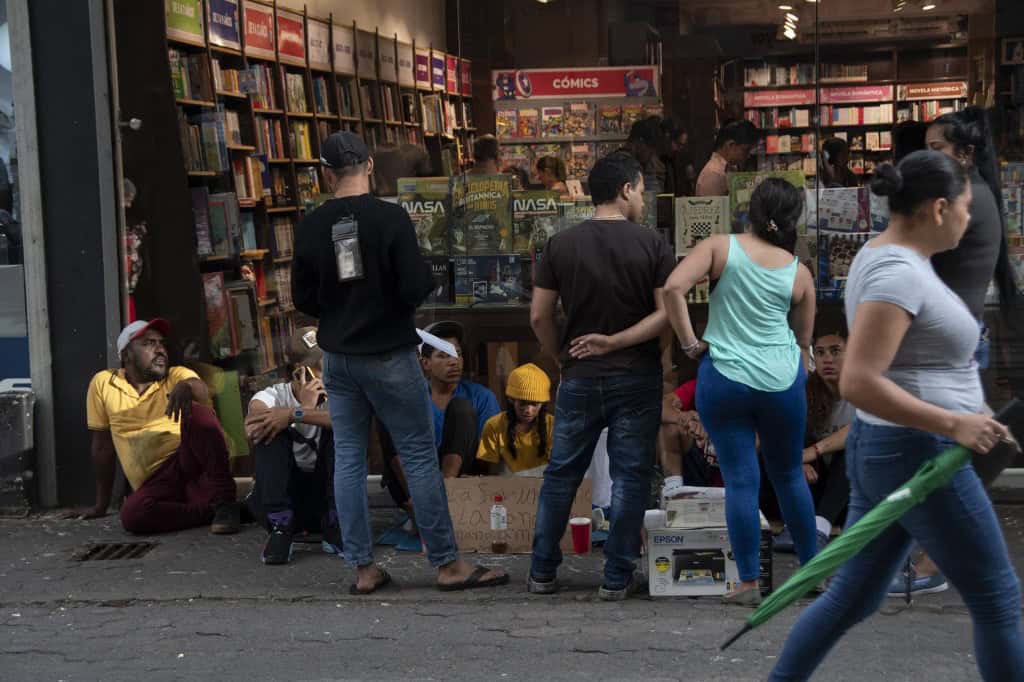For the past couple years in Costa Rica, there have been two types of people panhandling for money at busy intersections: Venezuelans, and everybody else. In the past 2 years there has been a steady stream of migrants escaping the ruinous policies of a country run by a half bright ex-bus driver, policies that have turned a once prosperous democracy into a dictatorship where the military and those close to the ruling party prosper while the masses struggle to put food on the table.
The numbers are staggering: Since January 1, 2023, about half a million Venezuelans have made the treacherous crossing of the Darien Gap into Panama, with the vast majority eventually finding their way into Costa Rica. While there are almost 30,000 Venezuelans now living legally here, most are stuck in a no man’s land, unable to make it to their dream destination of the US, and unwilling to return to their blighted home country.
Anyone living in an urban area has seen them holding the brown cardboard placards with the long messages scrawled in magic marker. Mostly young, many with small children, all have somehow survived the brutal jungle crossing that is the Darien Gap. One can’t help but feel sadness and pity. At stoplights they go from car to car, offering lollipops for a donation.
I sometimes give a few hundred colones, but other times feel a bit of compassion fatigue, and look straight ahead when they approach the car window. One Sunday evening, I went to the nearby supermarket that is open late. Outside against the wall wrapped in a blanket, was a family of 4, both children pre-school aged. Inside, besides my purchase, I bought some bananas, a box of saltines and four small boxed fruit drinks. I offered these and 1000 colones and received a lollipop and overwhelming gratitude in response.
Sometimes you use humor in a tragic situation, and I joked to myself as I got in my car– They got the best of that deal, I thought. But the joke rang hollow as I drove away, and I could not erase the thought of their ongoing suffering from my mind.
Here are excerpts from a first person account from a Venezuelan refugee, of what it is like to cross the Darien Gap:
“The Darien jungle is the worst thing I have experienced in my life. I wouldn’t wish it on anyone. We thought it would be easier, but it really is hard. My wife cried and I cried. If you had a fall there, you would die. It took us five days to cross because we were with our children.
There is a place in the jungle where there is a very thick log in the middle of the river– a huge log. And on the other side there is a very deep waterfall. People have to jump from a rock, first tying themselves with a rope. Some people slipped as they reached the edge of the rock. After we had passed by, a man died.
I felt like I was going stiff with my son in my arms; when he fell asleep, my arms felt dead. Crossing the rivers made me very afraid because, if I dropped him, how would I be able to rescue him like that? We climbed too many cliffs. We heard of several groups who were robbed, but not us. All our fingers are peeling with bloody sores, so we came here to get them checked and treated. The children have been crying and crying.”
San Isidro de el General, where I live, is the first major city traveling north from Panama. While the numbers of Venezuelans in the streets have diminished from a couple years back (when they were on virtually every street corner downtown), they are still arriving. Records show that about 25,000 refugees crossed the Darien Gap into Panama in September, with over 80% of them coming from Venezuela.
And while the US government has helped to implement a repatriation program, flying inadmissible migrants back to their home countries, it does not presently apply to Venezuelans here, as Costa Rica suspended all flights there following the evident theft of the recent election by the Maduro regime.
There are people I will see for a week or two, having staked out a particular intersection. Their faces become familiar as I will sometimes quickly drop whatever coins I have into their hands before driving through the intersection. Then one day, I will realize that I have not seen them recently. Maybe they will be replaced by new desperate faces, who will sooner or later also move on, joining the estimated 120 million displaced persons worldwide.






